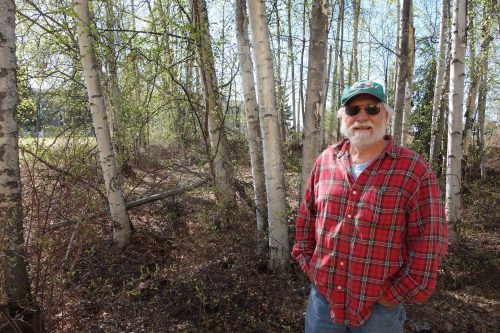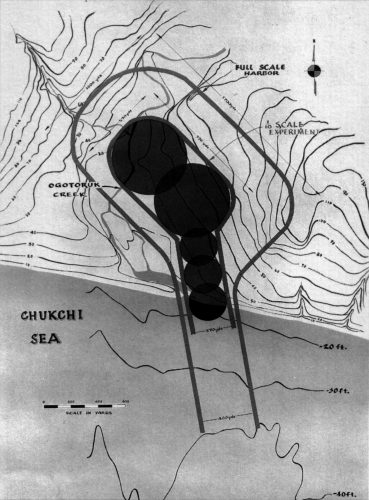Alaska writer awarded an honorary degree
May 27, 2021
Ned Rozell
907-474-7468

Alaska is large in its acreage of spruce swamps and spongey tundra but small in the number of writers who have described this place with both zealous accuracy and lyrical readability.
Dan O‚ÄôNeill is on that short list. The Fairbanks author of books controversial and poetic was honored by –‘”˚…Á; he received an honorary Doctor of Humane Letters degree at –‘”˚…Á‚Äôs recent commencement ceremony.
The 70-year-old author said the honor feels validating to someone who never held a traditional job at the university.
“I feel a lot of gratitude for the faculty support and letters from people in the world of science and literature,” he said.
O’Neill is perhaps best known for his book “The Firecracker Boys,” published in 1994. It’s the strange-but-true story of how officials for the Atomic Energy Commission, rallied by boosters in Alaska and elsewhere, proposed blasting a saltwater harbor from the coast of northwestern Alaska using nuclear bombs.
He is also the author of the biography of David Hopkins, “The Last Giant of Beringia,” an exhaustive feat of research about both a scientist and the concept of Alaska being connected with Asia during the last ice age.
In an interview at a picnic table on the –‘”˚…Á campus recently, O‚ÄôNeill said he began his writing experience as a poet. That sensibility tempers his descriptions of thermonuclear devices and plate tectonics, making him a reliable human filter of dense material.
“I want to make (my books) a work of literature,” he said. “I’ve got two masters I’ve got to satisfy — the scientific side and the general reader who I’ve got to pull through with a narrative.”

In ‚ÄúThe Firecracker Boys,‚Äù O‚ÄôNeill explored ‚Äúa piece of university history most people were happy to move on from.‚Äù He detailed a –‘”˚…Á president‚Äôs support of a 1950s Atomic Energy Commission proposal to create a harbor with nuclear detonations not far from the village of Point Hope.
Two biologists at the university were fired over their opposition to the project on the grounds it would be an environmental disaster. O’Neill saw that as a wrong that was never really righted, even long after the project was abandoned.
“I get incensed by injustice,” he said of his motivation for writing that book. “When (something that is not true) is the official record, I want to put it straight. (Biologists) Les Viereck and William Pruitt were fired, and the points of view of (university president) William Wood and the Atomic Energy Commission prevailed.”
The project did not happen, but was never officially canceled. People nationwide noticed O’Neill’s scholarly book (which includes 1,500 footnotes). Viereck and Pruitt were eventually awarded honorary degrees at the university.
My favorite of O’Neill’s books is “A Land Gone Lonesome,” his 2006 work about the changing human presence along the Yukon River, from Dawson City in Canada to Circle in Alaska. In it, O’Neill takes the reader along in his canoe on warm summer days and nights. He describes what he sees, as well as the river landscape as it was when the country was more peopled a century ago.
O’Neill is also author of the children’s book, “Stubborn Gal: The True Story of an Undefeated Sled Dog Racer,” published in 2015.
A writing routine of O’Neill’s — and also one of mine — is to allow experts to review his drafts.
“I don’t presume to know (everything the scientists do), and it’s easy to get something wrong,” he said.
O’Neill worked with the Oral History Program at the university for a decade, a job in which he interviewed people such as those living along the Yukon River and archived their experiences on the internet.
He also started his own radio show along with Robert Hannon, wrote a regular opinion column for the Fairbanks Daily News-Miner, built log cabins and was a laborer on the trans-Alaska pipeline during its construction in the late 1970s.
Through all of those experiences, the former Californian got to know Fairbanks and Alaska as a rewarding place for the curious person, a virtue he believes still exists.
“It really is the land of opportunity for the outlier,” he said.
Since the late 1970s, –‘”˚…Á' Geophysical Institute has provided this column free in cooperation with the –‘”˚…Á research community. Ned Rozell is a science writer for the Geophysical Institute.


